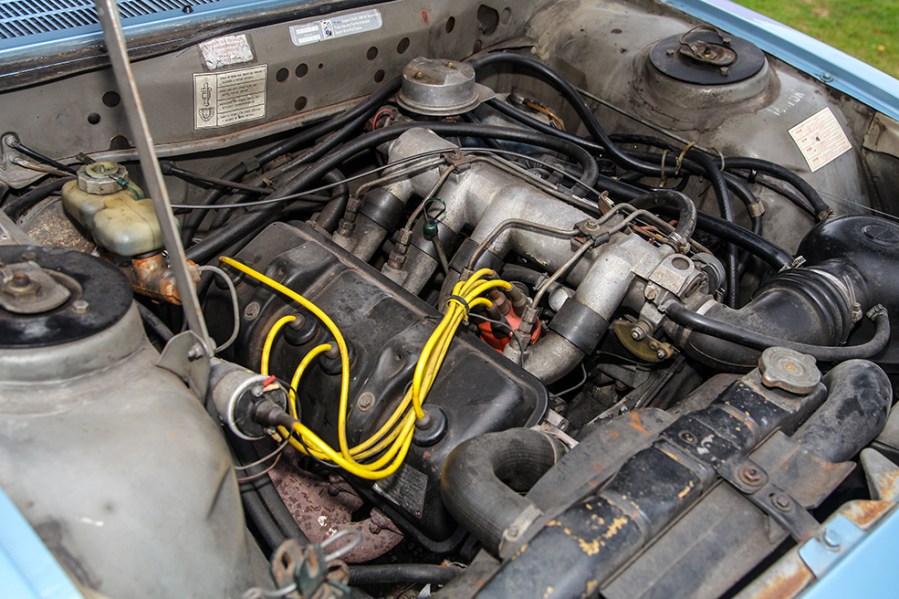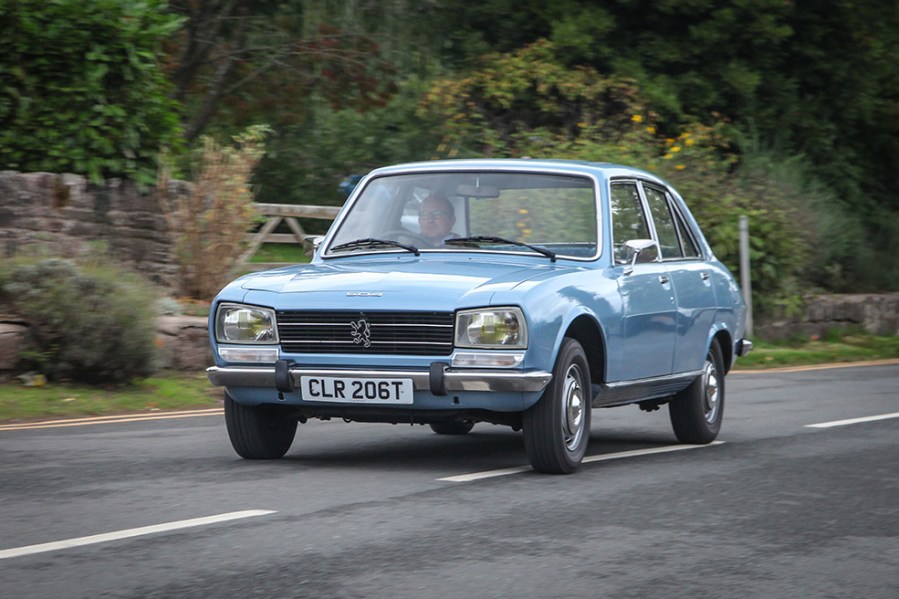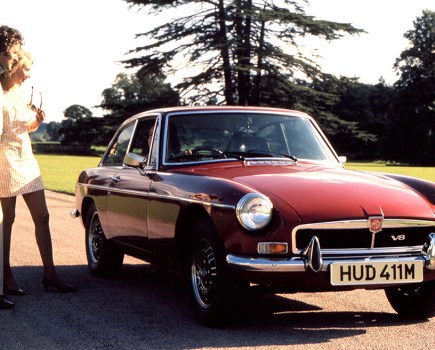The Peugeot 504 TI is one of the finest sports saloons of its generation but criminally underappreciated today. Here’s the story
Words: Andrew Roberts Images: Andy Starkey With thanks to: David Gianessi
Peugeot intended for the 504 to be the eventual heir to the 404, which dated from 1960 and would continue to be available in Europe until 1975. It was also a vehicle that would compete with the lower echelons of the Citroën ID/DS family and the Mercedes-Benz W115.
The launch took place on 12th September 1968, and British sales commenced in April 1969. It started out with a 1796cc four-cylinder engine, and the top-of-the-range TI boasted Kugelfischer fuel injection. Autocar thought it was ‘among Europe’s finest touring cars,’ and the 504 became Car of the Year for 1969, defeating the Jaguar XJ6, the BMW E3 and the Alfa Romeo 1750 Berlina.
One of the 504’s primary sales features was the distinctive bodywork created by Aldo Brovarone of Pininfarina. Peugeot dealers could further highlight the all-independent suspension, rack and pinion steering, and all-round Girling disc brakes.
The range gained a 1971cc engine option for late 1970, with a floor lever replacing a steering column change in 1972. David’s 504 is a prime example of the facelifted second-generation version introduced in 1975. The later TI examples also have electric front windows and power-assisted steering to impress one’s work colleagues.
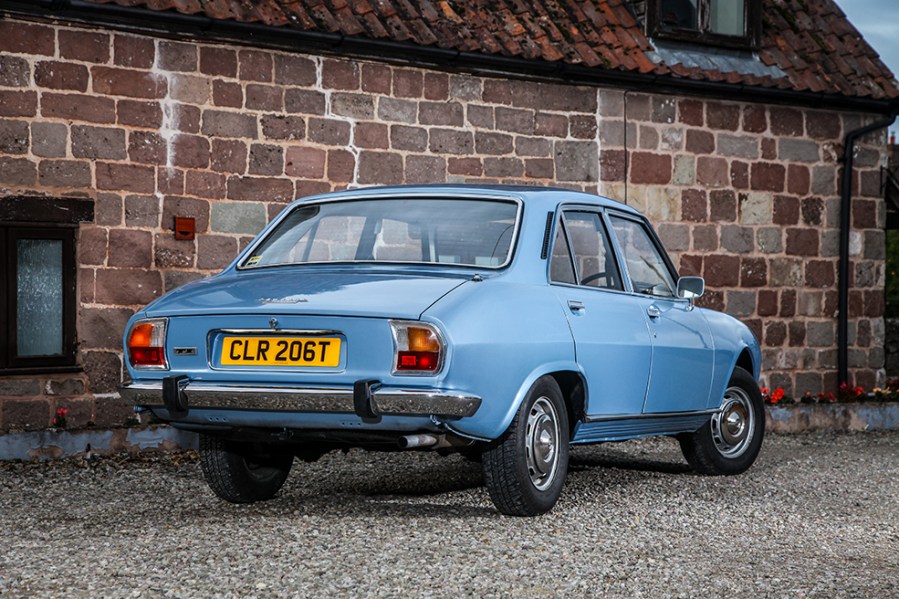
Sales of the 2.0-litre versions ended in 1979 with the launch of the 505, and European production of the 504 ceased in 1983. However, Peugeot continued to build the older model in Argentina until 1999 and in Kenya and Nigeria until as recently as 2006.
Today, the 504 TI is now a rare car even in France, while in the UK their numbers have diminished to the point there are just three roadworthy examples. In their heyday the 504 was sometimes encountered on British roads, but they were never an especially common sight. The Peugeot brand did not arguably gain mass popularity until the debut of the 205 in 1983.
Some readers may remember how the marque’s British market advertisements of the 1970s depicted their products as more than a cut above the average car. To quote one memorable UK sales campaign: ‘The 504 was designed for modern man.’
In other words, to own a TI in metallic blue was to gain access to an elite world of fondue parties and heated hostess trolleys. Equally importantly, every 504 – be it the entry-level L, a diesel-powered Paris taxi or the fuel-injected flagship – conveyed the same air of understated quality.
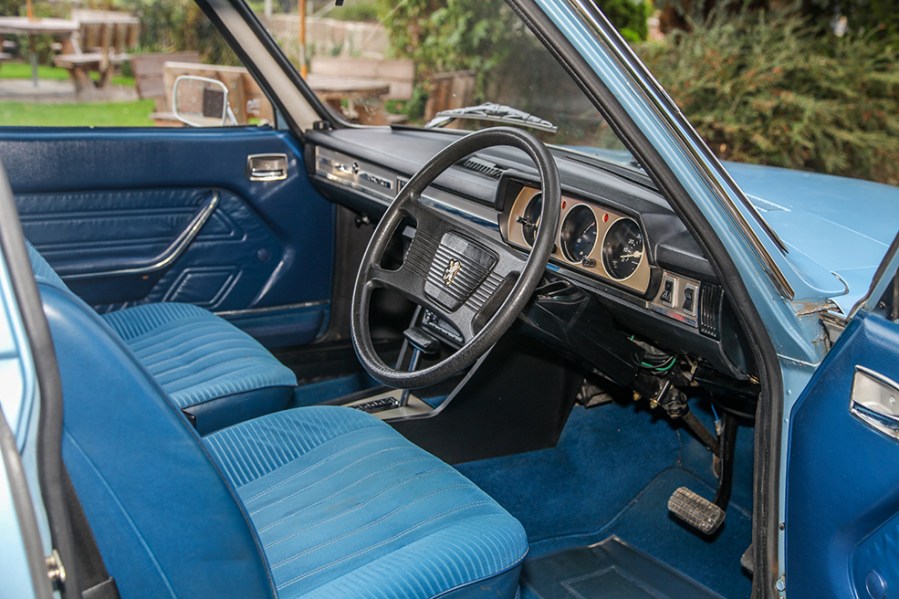
Nor was the TI overly expensive, as the automatic version cost £5130 in 1978, making it slightly cheaper than a Saab 99GL four-door at £5170 and considerably more affordable than a Ford Granada 2.3GL Mk2 at £5734. The keen driver might have considered the Alfa Romeo Alfetta GT at £4999, but that lacked the 504’s cabin space. Furthermore, most Peugeot owners would argue that the Ti was a bargain compared with the likes of the W123-series Mercedes-Benz 200 at £6350.
The TI is capable of a 106mph top speed and 0-60 in 12.6 seconds. These are respectable rather than blistering figures, but Peugeot UK did not market the flagship 504 to ageing Ton Up Boys whose main aim was to be first away from the lights. Nor was it a car for dedicated followers of fashion. Instead, it was transportation for those select owners who knew that true quality did not depend on go-faster stripes and front air dams. As Peugeot modestly put it: ‘Some cars are built to be fashionable for a year or two,’ which certainly did not apply to the TI.
Today, British 504 owners sometimes argue that their car of choice is undervalued in the UK – this could be because the 504 had no pretensions towards youth appeal. In the late 1960s and 1970s, their owners on both sides of the Channel tended to be mainly aged over 30 and solidly (but not stolidly) respectable. If Jerry Ledbetter of The Good Life ever wished to trade in his Volvo 145, a 504 TI would be its ideal replacement.
Perhaps the best description of the 504 TI is that it is a car for those who quietly appreciate quality and integrity. As Bill Boddy very accurately wrote in Motor Sport, “as an honest car that devours the kilometres nonchalantly and is nicely made, the 504 is an excellent successor to a long line of outstandingly good Peugeot family saloons.” Who could possibly demand more from a family saloon?
